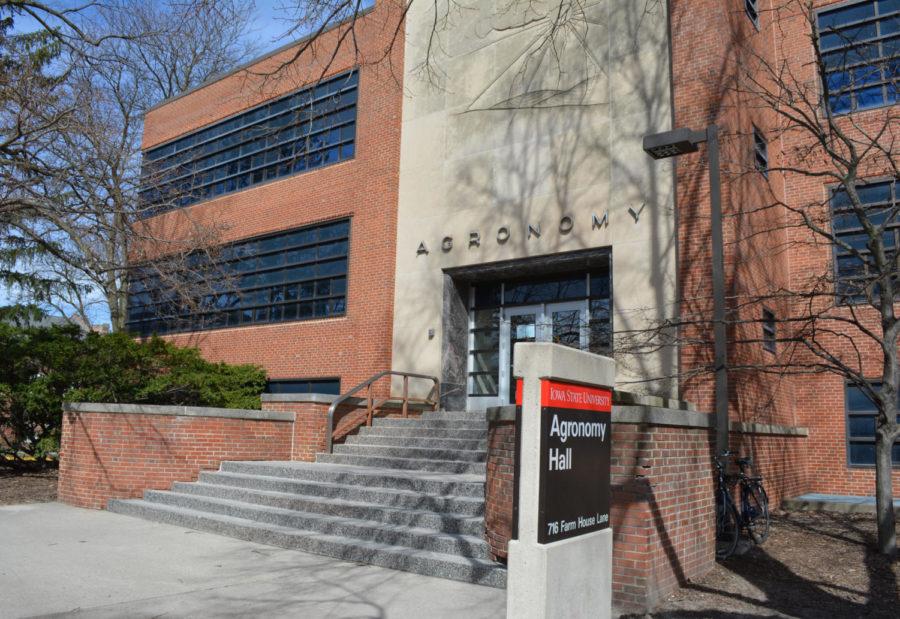Looking toward the cure during Breast Cancer Awareness Month
October 5, 2017
October is Breast Cancer Awareness Month, and while being diagnosed with breast cancer as a college student seems a little far-fetched, knowing how to advocate for one’s health and knowing the signs of breast cancer are important to know at any age.
Breast cancer is a malignant tumor that starts in the cells of the breast. Malignant tumors are the groups of cells that may start in one place and invade other areas of the body. Cells in any area of the body can be affected by cancer, regardless of the cancer’s origin.
Here are the key statistics, warning signs, ways to advocate for your health and get involved during Breast Cancer Awareness Month.
A few statistics
According the National Cancer Institute, 12.4 percent of women born in the United States will be diagnosed with breast cancer in their lifetime.
This statistic comes from the National Cancer Institute’s Surveillance, Epidemiology and End Results, or SEER, Program. If the program’s estimated rate of diagnosis stays the same, one in eight women born today will be diagnosed with breast cancer.
Age is also an established risk factor for breast cancer diagnoses. While fewer than five percent of women diagnosed were under the age of 40, there are other risk factors like family history that play into a potential diagnosis.
Breast cancer can also affect men. While 1 in 100 men will be diagnosed with breast cancer in their lifetime, approximately 2,470 new cases of invasive breast cancer will be diagnosed and about 460 men will die from breast cancer in 2017, according to the American Cancer Society.
Know the signs
While most breast cancers are caught in mammogram screenings and are caught before warning signs appear, not all cancers are caught through such screenings.
The most common sign of breast cancer is a lump or mass on the breast. Masses that are hard and painless with irregular edges are more likely to be cancer, but breast cancer can also come in the form of a softer, painful mass. It is for this reason that any changes in breast appearance or feeling should be checked by a healthcare provider.
According to the American Cancer Society, other symptoms of breast cancer may include:
-swelling on all or part of the breast
-skin irritation or dimpling
-nipple retraction (nipple turning inward)
-redness, scaliness or thickening of the skin around the nipple or breast
Breast cancer can also spread or cause swelling to lymph nodes under the arm or the collarbone. That spreading can cause a lump or swelling, and should also be checked by a healthcare provider.
Advocate for yourself
The Thielen Student Health Center gives clinical breast exams, as well as instructions for self-breast examinations. The McFarland Clinic also has a breast imaging department that combines mammography with instruction for self-breast examinations.
Mammograms given at the McFarland Clinic are read by accredited radiologists and computer-aided detection, or CAD. The clinic also provides other breast health services like breast ultrasounds, MRIs and three types of breast biopsies. More information can be found at mcfarlandclinic.com.
According to nationalbreastcancer.org, self-breast examinations should be performed at least once a month by adult women of all ages. They should be performed in the shower, in front of a mirror or lying down.
Use the pads of your fingers and move around the whole breast in a circular motion, checking for lumps around the breast and armpit area. Check for any knots, thickening or bumps in that area. If you notice any changes, see your healthcare provider.
If in front of a mirror, lift your arms up and look for changes in breast contour, swelling or dimpling of the skin. If lying down, place a pillow under the right shoulder and lift the right arm above your head. Again, use the pads of the fingers to check for lumps in the breast and armpit area.
How to get involved
Mary Greeley Medical Center will be hosting “An Evening of Bliss” at Reiman Gardens on Oct. 24 at 5:30 p.m. The evening will feature a keynote speaker and will offer an opportunity to learn about a new breast cancer rick assessment tool. More information can be found at mgmc.org
The Susan G. Komen Race for the Cure will also be held in Des Moines on Oct. 28. The race costs $35 for all participants. Race registration will begin at 7 a.m. and the 5K race will begin on the grounds of the Capitol at 9 a.m. At 9:30 a.m., the one mile “Fun Run” will also begin. More information can be found at info-komen.org.















